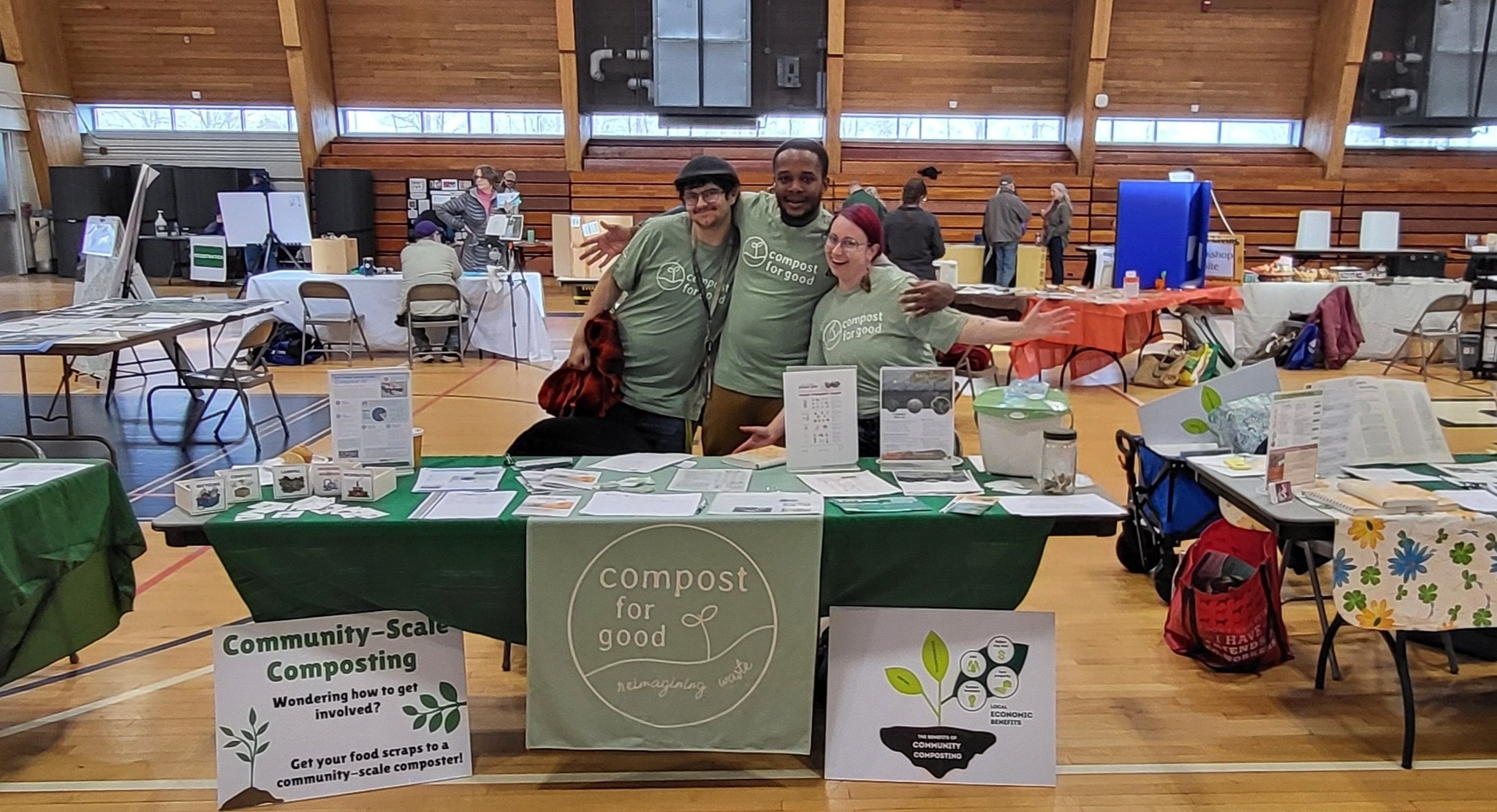Clarkson and ANCA Partnership to Launch Food Waste Reduction Campaigns
Community campaigns and food system assessments
Clarkson University and partner the Adirondack North Country Association’s (ANCA) Compost for Good (CfG) project are pleased to announce the launch of their 2nd series of Community Compost Liaison campaigns. Throughout the coming months, five community-based liaisons will work with a team of Clarkson students, Susan Powers, Director of Clarkson’s Institute for a Sustainable Environment, and CfG coordinator Jennifer Perry to offer a series of workshops, trainings, tabling events, 1:1 consultations, etc. to encourage their communities to adopt food waste reduction and recycling strategies. In addition to the outreach campaigns, the liaisons and students will work with a total of 20 food waste generators to conduct food waste assessments, identifying opportunities to divert wasted food from landfills or other disposal options that do not recover the value of the food scraps. This year’s campaigns will be hosted in Akwesasne, Canton/Potsdam, Plattsburgh, and the Town of North Elba.

Why is managing wasted food important?
“According to the EPA each year, between 30-40% of the food stream in the U.S. is wasted, with most of it deposited in a landfill.”, said Susan Powers. “This also wastes all of the water, land, fertilizer and energy required to grow and process that food. We have a tremendous opportunity to reduce the impacts of food generation, while easing pressure on our landfills and converting that same material into a much needed soil health builder.”
A recent waste characterization study by the Development Authority of the North Country (DANC) determined that 21% of the waste stream consisted of wasted food. When buried, organic material such as food “waste” generates methane and contributes to water quality issues from run-off. The same material can be used to increase food access, offset farm costs, and to generate an incredibly rich soil amendment for depleted soils.
Lake Placid Pub and Brewery Director of Brewery Operations Kevin Litchfield was one of the early adopters in the Tri Lakes area and is signed up with a local food scrap hauler/compost business. “We were hauling our brewery mash to the North Elba transfer station and knew we could do better. All of our spent grain and much of our wasted food are now turned back to compost which is then available for our local residents. We are also saving money at the transfer station. This was an easy decision that fit perfectly with our business’ values.”
How can I get involved?
The EPA has developed a Wasted Food Scale that prioritizes the reduction, reuse and recycling of food scraps. The first step is to reduce the amount of wasted food, which can be done through careful menu planning, proper storage techniques, portion control, repurposing leftovers, etc. There are options to work closely with local food pantries to provide food to support community members experiencing food insecurity. Next in line is to feed animals, with a number of North Country farmers currently taking food waste from local grocery stores, restaurants and food processing centers to feed the animals that feed the region. Recycling food scraps into soil health building material such as compost is the next preferred option.
“There are a number of food scrap haulers/composters in the region through our North Country Community Composting Coalition (N4C) eager to support your food waste recycling goals,” said Jennifer Perry. “Food waste diversion and compost generation creates tremendous rural business opportunities.”
“We are currently preparing for International Compost Awareness Week which runs May 4-10th” says community compost liaison and campaign communications coordinator Daegan Benoit. “ICAW is a 5-day event that calls attention to the power of community scale composting around the globe.”
If you are interested in hosting a community compost liaison presentation, or if you are a food waste generator who is interested in a free food waste assessment, reach out to compostforgood@adirondack.org.
For more information on the community compost liaison program, contact Jennifer Perry at compostforgood@adirondack.org or visit the CfG website; check out the Facebook page or follow on Instagram at compostforgoodofficial. Check out CfG’s short video on wasted food management.
ANCA is an independent, nonprofit corporation with a transformational approach to building prosperity across northern New York. Using innovative strategies for food systems, clean energy, small businesses, and equity and inclusion, ANCA delivers targeted interventions that create and sustain wealth and value in local communities. CfG is a program nested within ANCA’s food system program whose mission it is to promote the re-imagining and repurposing of “waste” as a valuable, soil health building resource.
